
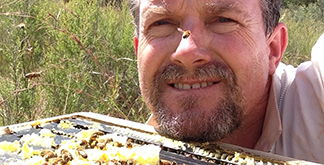
In this update, NSW Bee Biosecurity Officer (BBO) Rod Bourke provides an overview of his main activities since March 2020. It’s fair to say that I have found the last seven months to be about the weirdest time in my life, and there has been a lot of uncertainty that has made it tough for […] Read more
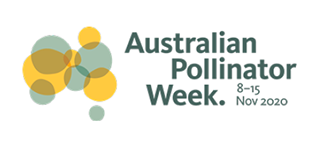
It’s a serious question raised in a slightly naughty way in ‘Pollination Week’, the Australian Pollinator Week theme song released today. “I couldn’t help smiling as I began to contemplate it” said Fiona Chambers, CEO of the Wheen Bee Foundation, “and that’s what makes this theme song so great; it does make you think about […] Read more
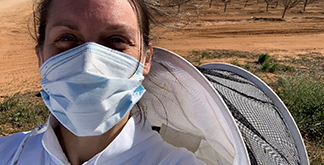
This update provides an overview Victorian BBO Ally Driessen’s main activities since mid-2020 Read more
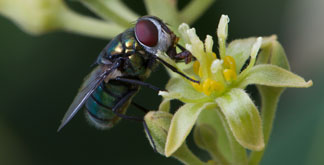
The latest guidelines in a series on how to improve pollination are now available for lychees and papayas, joining the earlier brochures for macadamias, avocados, blueberries and melons. Brian Cutting, Research Associate at Plant & Food Research Australia, said that pollination is a critical step to maximise the yield of many crops, but it sometimes […] Read more
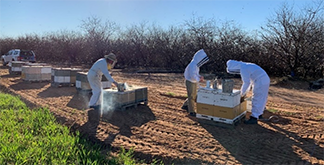
The 2020 almond pollination season is not far away. The Agriculture Victoria apiary team reminds beekeepers planning to provide pollination services that it is vital to adequately prepare hives so that they are healthy and strong to work in the orchards. Australian Honey Bee Industry Biosecurity Code of Practice (‘the Code’) Almond pollination season provides […] Read more
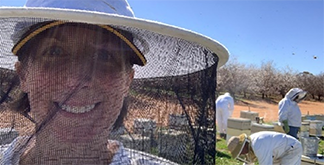
At the end of 2019 and beginning of 2020, Victorian Bee Biosecurity Officer Ally Driessen focused on bee biosecurity and disease and pest risk mitigation through: Supporting beekeepers who have notified the department about pests, diseases and bee deaths. These are mostly cases of suspected American Foulbrood (AFB) and chalkbrood. Supporting councils (through the Apiary […] Read more

Beekeepers who plan to attend pollinations are urged to complete a four point checklist. Read more
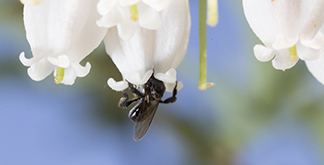
Pollination guides for blueberry, melon, macadamia and avocado crops are now available for Australian producers. Each brochure contains detailed information about the basics of pollination, the range of pollinators for the crop, and a checklist to ensure the best pollination results. The unique features of each crop are considered to give tailored advice on maximising pollination […] Read more
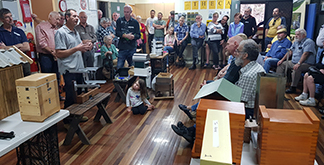
Native bee enthusiasts and professionals alike are in a buzz of excitement with the formation their own member organisation, the Australian Native Bee Association. President Dr Tim Heard said: “The association will harness and spread the enthusiasm for native bees by many groups including naturalists, beekeepers, farmers and backyarders.” The Australian Native Bee Association aims […] Read more
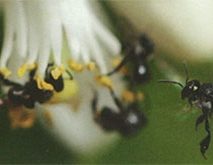
Honeybees are excellent pollinators of many crops, but the burden placed on their health by pests and diseases is heavy. Added to that, the looming threat of a varroa mite incursion makes our reliance on honeybees for pollination decidedly risky. In this context, the Hawkesbury Institute for the Environment at Western Sydney University is heading […] Read more
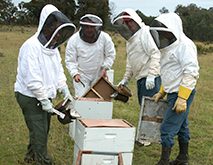
NSW Department of Primary Industries (DPI) has declared American foulbrood (AFB) Awareness Month this October to help keep local bee hives healthy and productive. DPI plant biosecurity prevention and preparedness manager, Chris Anderson, urged beekeepers across the state to look for symptoms of AFB and take prompt action. “If there are signs of AFB, dark […] Read more
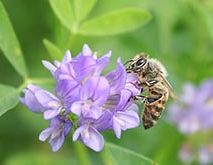
Biosecurity SA is reminding beekeepers to be on the lookout for American foulbrood (AFB), found in hives pollinating lucerne in the Tintinara area. Biosecurity SA’s new Bee Biosecurity Officer Teagan Alexander is working closely with apiarists in the region to ensure no further spread of the disease. Beekeepers and growers seeking further information on AFB […] Read more
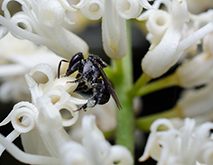
Improving macadamia tree yields by more than 50 per cent could be achieved by alternating varieties in rows and increasing pollinators, new research suggests. For the study – funded by Hort Innovation and Plant & Food Research and the Australian Macadamia Society (AMS) – researchers conducted a trial in a Bundaberg orchard which investigated pollination […] Read more
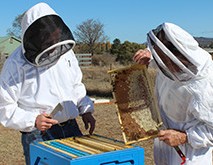
A new online training course was launched by the Australian Honey Bee Industry Council (AHBIC) and Plant Health Australia this week, to make it easy for beekeepers to find out how to care for honey bees in accordance with the new Australian Honey Bee Industry Biosecurity Code of Practice. The Biosecurity for Beekeepers course explains […] Read more
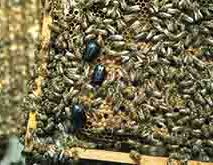
In the wake of the first ever Australian review of the risk posed to the country’s pollination and agricultural industries by large African hive beetle (LAHB), the pest is now endorsed as a High Priority Pest by all state, territory and federal governments. As part of a research project funded by the Honey Bee and […] Read more
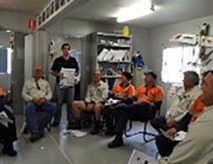
Bees on the move With the recent rainfall in North Queensland, there has been a notable increase in bee activity and swarms. The National Varroa Mite Eradication Progam is calling on beekeepers and members of the public in the Townsville area to report new bee swarms and feral nests so that they can be examined […] Read more

The Australian Honey Bee Industry Council (AHBIC) and Cotton Australia are calling on all farmers and beekeepers to use online tools to better communicate with each other to protect bees and crops. Cotton Australia CEO, Adam Kay, says the BeeConnected app facilitates communication between farmers and beekeepers as a tool to ensure crop protection is […] Read more
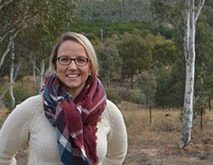
Currently Australia has a high concentration of feral honey bee colonies – that is unmanaged hives in the wild—and these helpful insects pollinate many crops. But as overseas experience has shown, if there should be an incursion of the honey bee parasite Varroa destructor in Australia, this invader would kill off unmanaged hives, with the […] Read more
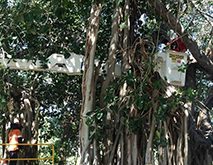
The campaign to rid Townsville of varroa mites is now being funded nationally, with a dedicated locally-based varroa mite eradication team being established in Townsville. Minister for Agriculture and Fisheries and Minister for Rural Economic Development Bill Byrne said the establishment of the National Varroa Mite Eradication Program would ensure a continuing long-term effort to […] Read more
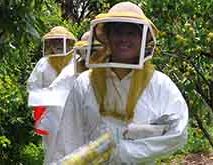
The secret to being a good beekeeper Currently Australia is free of many serious honey bee pests that damage the health of European honey bees overseas. According to Alison Saunders, National Manager for Horticultural Cropping at Plant Health Australia, exotic pests such as varroa, tropilaelaps or tracheal mites are a constant threat. “As bad as […] Read more